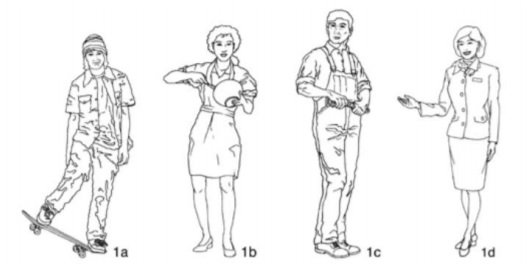'THEM' and 'US': Stereotypes and Identities
Last summer on a flight from UAE to UK, I found myself sitting next to a young British man. For a few minutes, I could feel his curious eyes on me. Finally, he said “You must be from India”. When I told him that he was wrong and that I was from Pakistan, he said casually “Ah. Indians, Pakistanis, they are all the same.” After we got to talking, he offered to show
me around London after we land, and he said jokingly “I will totally understand if you bring along a chaperone to ‘keep an eye on you’.” This British man put Indians and Pakistanis in the same ‘category’ and was referring to the stereotypes of Pakistanis and Indians as conservative. This articles explores this ‘categorization’ and ‘generalization’ on the basis of appearance, race or virtually anything. As a Pakistani, I am used to such stereotyping. I am sure we all are, no matter what our race, ethnicity, culture or orientation is.
What are Stereotypes? They are prejudices that individuals have towards groups of people. They may be positive or negative. They may or may not be true. Individual differences are ignored and generalizations are made. We often categorize on the basis of visual cues. The figure below presents four examples.
Many observers will in these images see a teenager (1a), a housewife (1b), a craftsman (1c), and an air-hostess (1d). A visual stereotype makes majority of observers perceive the person in a certain way due to certain visual attributes of the person. The visual input hence provides a framework for what to expect from the person: how he/she is likely to behave and to talk, what attitudes and opinions he/she will be likely to have, etc. In this way visual cues carry social baggage. For example, if someone looks ugly or unkempt, a Pakistani would take no time in making comments like “You look like a Masi (maid)”, or “You look like a Jamadaar (peon)”.
Stereotypes are often so deeply engraved in our minds that they actually become our reality; we do not even realize that they are stereotypes. In Pakistan, policemen and politicians are looked upon as corrupt; artists are looked upon as dumb people who cannot get a science/commerce education; and doctors and engineers are highly respected.

